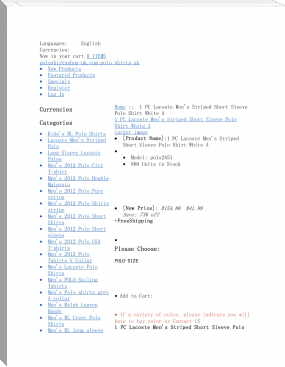The Ghost Kings, H. Rider Haggard [best thriller books to read TXT] 📗

- Author: H. Rider Haggard
Book online «The Ghost Kings, H. Rider Haggard [best thriller books to read TXT] 📗». Author H. Rider Haggard
When she was gone Ishmael cursed her aloud, then drank some more rum, which he seemed to need. The place was very lonely, and the sight of his dog, lying to all appearance dead at his side, oppressed him. He patted its head and it did not move; he lifted its paw and it fell down flabbily. The brute was as dead as anything could be. It occurred to him that before night came again he might look like that dog. His story might be told; he might have left the earth in company of all the deeds that he had done thereon. He had imagination enough to know his sins, and they were an evil host to face. Old Dove and his wife, for instance--holy people who believed in God and Vengeance, and had never done any wrong, only striven for years and years to benefit others; it would not be pleasant to meet them. Rachel had said that she saw them standing behind him, and he felt as though they were there at that moment. Look, one of them crossed between him and the lamp--there was the mark of the kerry on his head--and the woman followed; he could see her blue lips as she bent down to look at the dog. It was unbearable. He would go and talk to Rachel, and ask her if she had made up her mind. No, for if he broke in on her thus at night, he was sure that she would kill either herself or him with that spear she had taken from the dead Zulu, reddened with his own blood. He would keep faith with her and wait till the morrow. He would send for one of his wives. No, the thought of those women made him sick. He would go round the fortifications and beat any sentries whom he found asleep, or receive the reports of the spies. To stop in that hut in the company of a dog which seemed to be dead, and of imaginations that no rum could drown, was impossible.
* * * * *
Once more the morning came, and Rachel sat in the walled yard awaiting the dreadful hour of her trial, for it was the day and time that Ishmael had appointed for her answer. Until now Rachel had cherished hopes that something might happen: that the people of Mafooti might intervene to save her and Richard; that the Zulus might appear, even that Ishmael might relent and let them go. But Mami had been out that morning and brought back tidings which dispelled these hopes. She had ventured to sound some of the leading men, and said that, like all the people, they were very sullen and alarmed, but declared, as she had expected, that they dare do nothing, for Ibubesi would kill them, and if they escape him the Zulus would kill them because the Inkosazana was found in their possession. Of the Zulus themselves, scouts who had been out for miles, reported that they had seen no sign. It was clear also that Ishmael was as determined as ever, for he had sent her a message by Mami that he would wait upon her as he had promised, and bring the white man with him.
Then what should she say and what should she do? Rachel could think of no plan; she could only sit still and pray while the shadow of that awful hour crept ever nearer.
It had come; she heard voices without the wall, among them Ishmael's. Her heart stopped, then bounded like a live thing in her breast. He was commanding someone to "catch that dog and tie it up, for it was bewitched, and did not know him or anyone," then the sound of a dog being dragged away, whining feebly, and then the door opened. First Ishmael came in with an affectation of swaggering boldness, but looking like a man suffering from the effects of a long debauch. About his eyes were great black rings, and in them was a stare of sleeplessness. He carried a double-barrelled gun under his arm, but the hand with which he supported it shook visibly, and at every unusual sound he started. After him came Richard, his wrists bound together behind him, and on his legs hide shackles which only just allowed him to shuffle forward slowly. Moreover he was guarded by four men who carried spears. Rachel glanced quickly at his face, and saw that it was pale and resolute; quite untouched by fear.
"Are you well?" she asked quietly, taking no note of Ishmael.
"Yes," he answered, "and you, Rachel?"
"Quite well bodily, Richard, but oh! my soul is sick."
Before he could reply Ishmael turned on him savagely, and bade him be silent, or it would be the worse for him. Then he took off his hat with his shaking hand, and bowed to Rachel.
"Rachel," he said, "I have kept my promise, and left you alone for three days, but time is up and now this gentleman and I have come to hear your decision, which is so important to both of us."
"What am I to decide?" she asked in a low voice, looking straight before her.
"Have you forgotten? Your memory must be very bad. Well, it is best to have no mistake, and no doubt our friend here would like to know exactly how things stand. You have to decide whether you will take me as your husband to-day of your own free will, or whether Mr. Richard Darrien shall suffer the punishment of death, for having tried to kill his sentry and escape, a crime of which he has been guilty, and afterwards I should take you as my wife with, or without, your consent."
When Richard heard these words the veins in his forehead swelled with rage and horror till it seemed as though they would burst.
"You unutterable villain," he gasped, "you cowardly hound! Oh! if only my hands were free."
"Well, they ain't, Mr. Darrien, and it's no use your tugging at that buffalo hide, so hold your tongue, and let us hear the lady's answer," sneered Ishmael.
"Richard, Richard," said Rachel in a kind of wail, "you have heard. It is a matter of your life. What am I to do?"
"Do?" he answered, in loud, firm tones, "do? How can you ask me such a question? The matter is not one of my life, but of your--of your--oh! I cannot say it. Let this foul beast kill me, of course, and then, if you care enough, follow the same road. A few years sooner or later make little difference, and so we shall soon be together again."
She thought a moment, then said quietly:
"Yes, I care enough, and a hundred times more than that. Yes, that is the only way out. Listen, you Ishmael:--Richard Darrien, the man to whom I am sworn, and I, give you this answer. Murder him if you will, and bring God's everlasting vengeance on your head. He will not buy his life on such terms, and if I consented to them I should be false to him. Murder him as you murdered my father and mother, and when I know that he is dead I will go to join him and them."
"All right, Rachel," said Ishmael, whose face was white with fury, "I think I will take you at your word, and you can go to look for him down below, if you like, for if I am not to get you here, he shan't. Now then, say your prayers, Mr. Darrien," and stepping forward slowly he cocked the double-barrelled gun.
"Men of Mafooti," exclaimed Rachel in Zulu, "Ibubesi is about to do murder on one who like myself is under the mantle of Dingaan. If his blood should flow to-day or to-morrow, yours shall flow in payment, yours, and that of your wives and children, for the crime of the chief is the crime of the people."
At her words the four natives who had been watching this scene uneasily, although they could not understand the English talk, called out to Ishmael in remonstrance. His only answer was to lift the gun, and for an instant that seemed infinite Rachel waited to hear its explosion, and to see the grey-eyed, open-faced man she loved, who stood there like a rock, fall a shattered corpse. Then one of the Kaffirs, bolder than the rest, struck up the barrels with his arm, and not too soon, for whether or no he had meant to pull the trigger, the rifle went off.
"Try the other barrel," said Richard sarcastically, as the smoke cleared away, "that shot was too high."
Perhaps Ishmael might have done so, for the man was beside himself, but the Kaffirs would have no more of it. They rushed between them, lifting their spears threateningly, and shouting that they would not allow the blood of the white lord and the curse of the Inkosazana to be brought upon their heads and those of their families. Rather than that they would bind him, Ibubesi, and give him over to the Zulus. Then, whether or not he had really meant to kill Richard, Ishmael thought it politic to give way.
"So be it," he said to Rachel, "I am merciful, and both of you shall have another chance. I am going with this fellow, but the woman, Mami, shall come to you. If within three hours you send her to me with a message to say that you have changed your mind, he shall be spared. If not, before nightfall you shall see his body, and afterwards we will settle matters."
"Rachel, Rachel," cried Richard, "swear that you will send no such message."
Now the brute, Ishmael, rushed at him to strike him in the face. But Richard saw him coming, and bound though he was, put down his head and butted at him so fiercely, that being much the stronger man, he knocked him to the ground, where he lay breathless.
"Swear, Rachel, swear," he repeated, "or dead or living, I will never forgive you."
"I swear," she said, faintly.
Then he shuffled towards her. Bending down he kissed her on the face, and she kissed him back; no more words passed between them; this was their farewell. Two of the Kaffirs lifted Ishmael, and helped him from the yard, whilst the other two led away Richard, who made no resistance. At the gate he turned, and their eyes met for a moment. Then it closed behind him, and she was left alone again.
CHAPTER XVII(RACHEL LOSES HER SPIRIT)
A little while later Mami entered, and said that she had been sent by Ibubesi to serve the Inkosazana as a messenger, should she need one. Rachel, seated on the bench, motioned to her to go into the hut and bide there, and she obeyed.
Minute by minute the time ebbed away, and still Rachel sat motionless on the bench. Towards the end of the third hour someone unbolted and knocked at the door. Mami opened it and reported that Ibubesi stood without,





Comments (0)